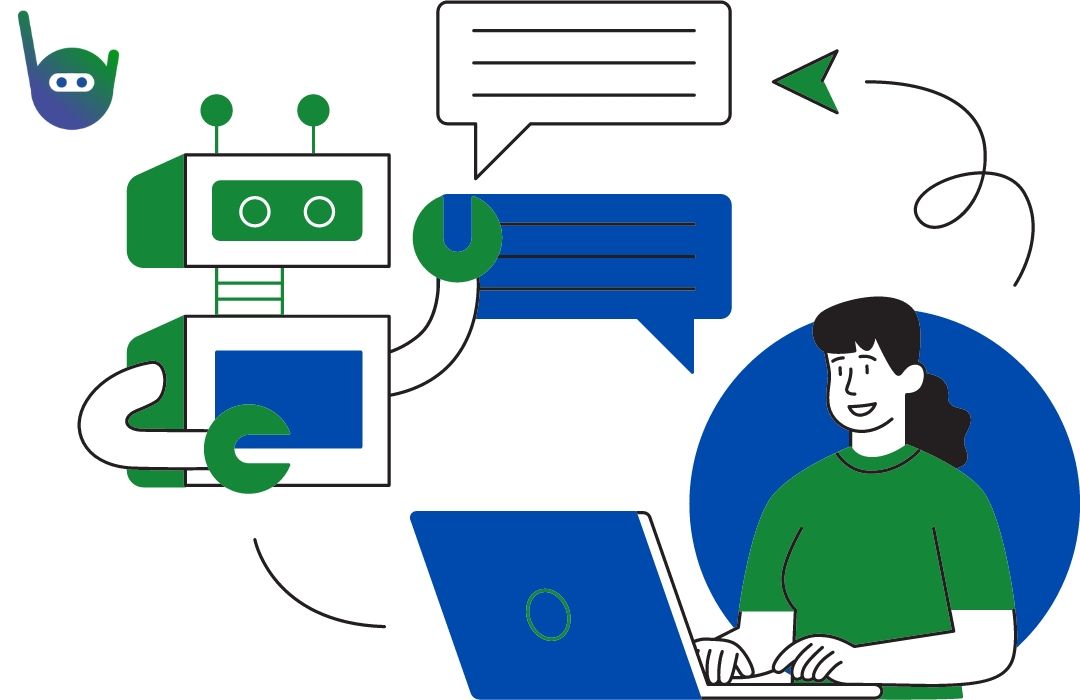In this article, we will explore the applications and benefits of machine learning in software testing. However, with the advancements in technology, machine learning has emerged as a powerful tool to improve the efficiency and effectiveness of software testing processes. In today's fast-paced software development landscape, delivering high-quality software within tight deadlines is a challenge. Traditional testing methods may fall short of keeping up with the ever-growing complexity of software systems. This is where machine learning comes into play, offering new possibilities for software testing.
What Is Machine Learning in Software Testing

Machine learning is a branch of artificial intelligence that focuses on developing algorithms and models that enable computers to learn and make predictions or decisions without explicit programming. It involves the analysis of large datasets to identify patterns, make predictions, and improve performance over time.
5 Benefits Of Machine Learning in Software Testing:
Automated Test Case Generation: Machine Learning algorithms can analyze historical testing data and patterns to generate automated test cases. This accelerates the testing process and reduces manual effort, especially in scenarios with complex test scenarios.
Improved Test Coverage: Machine Learning techniques can identify potential test scenarios and edge cases that human testers might miss. This leads to improved test coverage, ensuring that various aspects of the software are thoroughly tested.
Enhanced Bug Detection: Machine Learning can analyze large datasets and identify patterns indicative of bugs or defects. It helps in early detection of potential issues, enabling timely bug fixes before they escalate.
Efficient Defect Prediction: Machine Learning models can predict potential areas where defects are likely to occur, allowing testing teams to focus their efforts on critical parts of the software, thereby optimizing resource allocation.
Reduced Testing Time and Costs: Machine Learning automation can significantly speed up the testing process, reducing the overall testing time and costs. It also allows testers to focus on more complex tasks that require human expertise.
Machine Learning in Test Case Generation
Test case generation is a critical aspect of software testing. Machine learning algorithms can analyze historical data, including code changes, bug reports, and test results, to generate new test cases automatically. This approach improves test coverage and helps identify potential areas of software failure.
Predictive Analytics for Defect Detection
Machine learning models can be trained to detect patterns and anomalies in software behavior. By analyzing past defects and their root causes, these models can predict potential issues in the software and highlight areas that require special attention during testing. This predictive approach helps testers prioritize their efforts and allocate resources effectively.
Automated Test Execution and Analysis
Machine learning algorithms can automate the execution and analysis of test cases. By learning from the test results, these algorithms can identify patterns that indicate the presence of bugs or anomalies. This automation reduces the manual effort required for testing and speeds up the overall testing process.
Enhancing Test Coverage with Machine Learning
Machine learning can help improve test coverage by identifying edge cases and unusual scenarios that are often overlooked in manual testing. By analyzing vast amounts of data, machine learning algorithms can uncover patterns and correlations that humans might miss, ensuring comprehensive test coverage.
Improving Test Maintenance and Regression Testing
As software evolves and new features are added, test maintenance becomes a challenging task. Machine learning algorithms can analyze changes in the software codebase and automatically update test cases to reflect these changes. Additionally, machine learning can help identify the most relevant test cases for regression testing, reducing the time and effort required to validate software updates.
Challenges and Limitations of Machine Learning in Software Testing
While machine learning offers significant advantages in software testing, it also comes with its own challenges and limitations. One of the primary challenges is the need for large and diverse datasets for training machine learning models. Additionally, ensuring the reliability and interpretability of machine learning models in the context of software testing is another area that requires attention.
The Future of Machine Learning in Software Testing
The future of machine learning in software testing looks promising. As technology continues to advance, we can expect more sophisticated machine learning models and algorithms that can address the limitations of the current approaches. Furthermore, the integration of machine learning with other emerging technologies, such as robotic process automation and natural language processing, will revolutionize the field of software testing.
Read More About: Robotic Process Automation Testing
Conclusion
Machine learning has the potential to transform the way software testing is conducted. By leveraging its capabilities in test case generation, defect detection, automated test execution, and analysis, as well as enhancing test coverage and maintenance, software development teams can significantly improve the efficiency and effectiveness of their testing processes. However, it is important to address the challenges and limitations associated with machine learning to ensure its successful implementation in software testing.
Revolutionize your software testing with Robonito, the ultimate no-code RPA automation testing tool. Say goodbye to endless testing hours – Robonito slashes testing time by a staggering 98%! Ready to experience the future of software testing? BOOK A FREE DEMO NOW and transform your testing process today!
